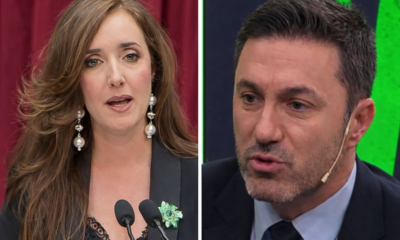INTERNACIONAL
Trump urged to review UN immunity, lax visa rules amid national security concerns

A 1947 agreement outlining obligations as host of the United Nations continues to give employees and their family members relatively unfettered access to the U.S.
At a time of increased national security fears and immigration enforcement by the Trump administration, experts are urging a re-examination of the host nation agreement with an eye to the functional immunity granted to U.N. staff and the limited vetting given to those with U.N. visas.
«The United States appears to have taken a relaxed view of the individuals entering the country associated with the U.N., either as employees or as representatives of various country missions. And yet we know that U.N. employees have had, and continue to have, close, direct relationships with terrorist organizations, like UNRWA and Hamas,» Anne Bayefsky, director of the Touro Institute on Human Rights and the Holocaust and president of Human Rights Voices, told Fox News Digital.
UN WATCHDOG PROJECT CALLS ON DOGE CAUCUS TO ‘AUDIT’ THE INTERNATIONAL ORG
Sergey Lavrov, Russia’s minister for foreign affairs, talks with Vassily Nebenzia, Russia’s U.N. ambassador, during a meeting of the U.N. Security Council, April 24, 2023. (AP Photo/John Minchillo)
Bayefsky said there is «a disconnect between the welcome routine and the significant harm to American interests. Hosting the U.N. does not require the host country to facilitate or endure threats to its national security.»
The federal government grants G visas to employees, spouses and children of international organizations, including the U.N., who reside in, or are visiting, the U.S. According to the State Department’s website, «if you are entitled to a G visa, under U.S. visa law, you must receive a G visa. The exceptions to this rule are extremely limited.» The Department of State also explains that «Embassies and consulates generally do not require an interview for those applying for G-1 – 4 and NATO-1 – 6 visas, although a consular officer can request an interview.»
Hugh Dugan, a senior advisor to 11 U.S. former ambassadors to the U.N., told Fox News Digital that it «appears to me that the issuance of the G visas for [U.N. employees] is a relatively rubber stamp exercise.» While not requiring interviews of personnel has «become a matter of convenience, frankly, we should always be able to assess a threat to our country.»’
Dugan, a former National Security Council special assistant to the president and senior director for international organization affairs, said nations like Russia and China are only allowed to travel a certain distance from U.N. headquarters. «We are mindful of our adversaries’ activities and presence here, but the door is open to participate in the U.N. and the host country agreement makes that possible so that no country would be barred because of a certain political atmosphere or issue that might be brewing between us and them.»
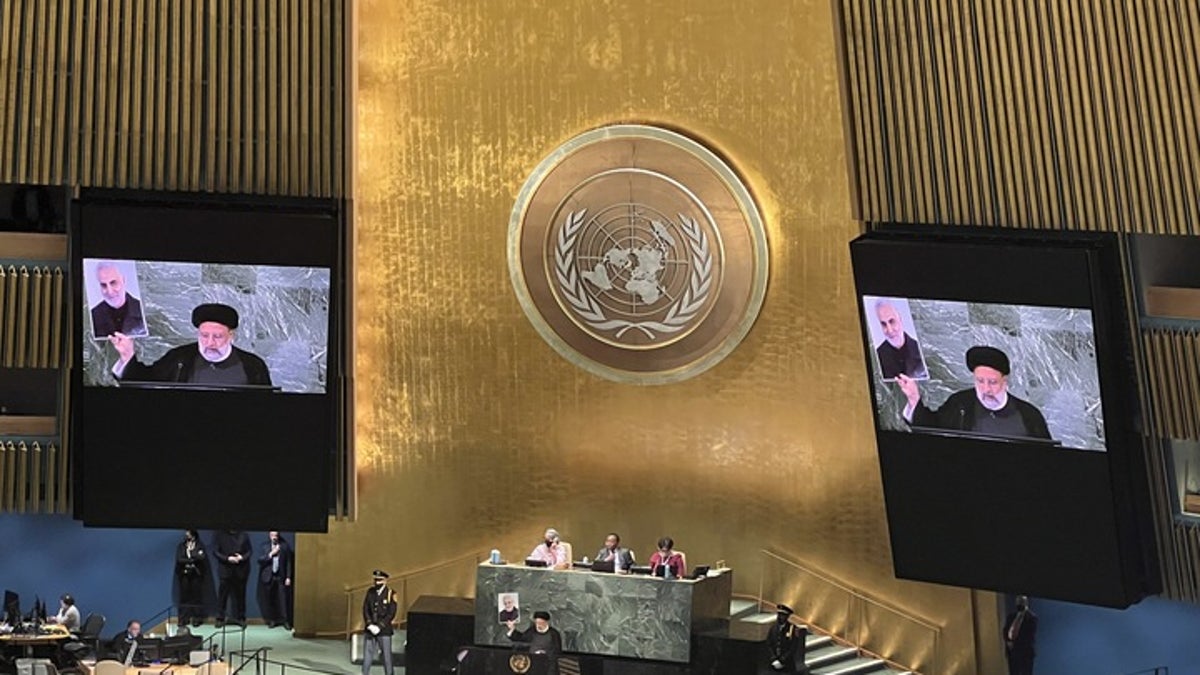
Former Iranian President Ebrahim Raisi displays the photo of Gen. Kasim Soleimani at the United Nations. (Peter Aitken for Fox News Digital)
Fox News Digital asked the State Department whether it requires interviews for staff from adversarial member states, including Cuba, Venezuela, Russia, North Korea, Iran and China, but received no response. A State Department spokesperson reiterated that consular officers «have full authority to require an in-person interview for any reason.»
Peter Gallo, formerly an investigator with the U.N. Office of Internal Oversight Services (OIOS), told Fox News Digital that he is particularly concerned about the functional immunity granted to U.N. staff participating in activities related to their employment. Gallo explained that «U.S. legal system has come to accept that pretty much it’s a blanket coverage.» He added that «immunity breeds impunity.»
REPUBLICANS SEEK TO BLOCK THE REAPPOINTMENT OF UN OFFICIAL ACCUSED OF ANTISEMITISM
Gallo claimed that there is an epidemic of sexual offenses and misconduct among U.N. staff. He cited an incident in which a U.N. employee outside the U.S. sexually harassed «a young female in his department.» Gallo said it took two years after receipt of the investigation report for an investigation to be completed, which resulted in the demotion of the offending employee. Gallo said the employee who was harassed, and her harasser remained in the same organization.
Gallo said that if employees take part in misconduct while based at U.N. headquarters, the U.S. government should be able to examine cases and determine whether staff should retain their G visas.
Dugan said that if U.N. personnel «knew that [immunity] could be lifted at any time by us… they might start behaving a lot differently.»
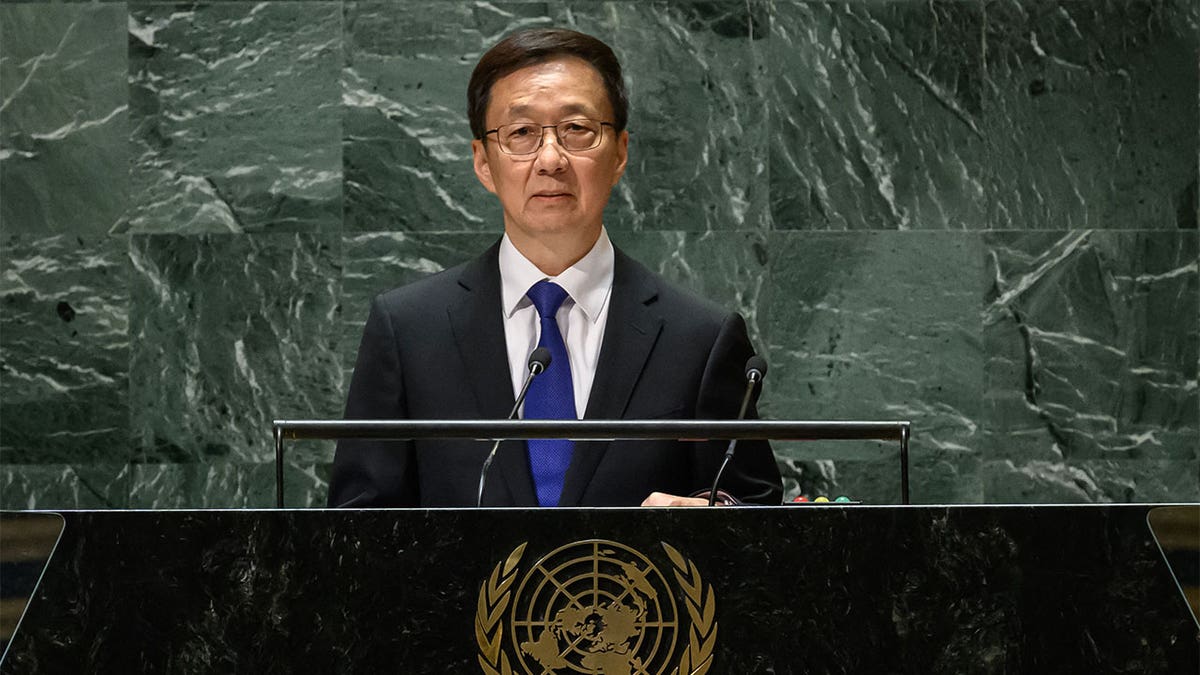
China’s Vice President Han Zheng addresses the 78th United Nations General Assembly in New York City on Sept. 21, 2023. (Ed Jones/AFP via Getty Images)
In response to questions about whether U.N. staff have been accused of sexual misconduct in the U.S., or whether U.N. staff who engaged in misconduct have had their G visas revoked, a State Department spokesperson explained the department «generally does not provide» revocation statistics. They also said that «all visa applicants, no matter the visa type and where they are located, are continuously vetted. Security vetting runs from the time of each application, through adjudication of the visa, and afterwards during the validity period of every issued visa, to ensure the individual remains eligible to travel to the United States.»
The spokesperson said officials of the U.N. «are expected to respect applicable laws of the United States, including criminal laws. Failure to do so may constitute an abuse of privileges of residence.» They added that this «applies for those who hold diplomatic immunity for their positions as well.»
Among staff who have raised internal alarm bells is U.N. special rapporteur on the occupied Palestinian territories Francesca Albanese, who traveled to the U.S. in 2024 to deliver a report before the Third Committee of the General Assembly. Albanese, whose antisemitism has been condemned widely by senior U.S. diplomats and the State Department, was allowed to tour multiple U.S. college campuses while in the U.S.
CLICK HERE TO GET THE FOX NEWS APP
In addition to qualifying for «rubber stamp» G visas, staff of international organizations like the United Nations can qualify for green cards if they have spent half of at least seven years of employment inside the U.S., or have been in the U.S. for a combined total of 15 years prior to retirement.
INTERNACIONAL
Trump anticipó la caída de la dictadura de Cuba tras la ofensiva de Estados Unidos en Irán: “Es la guinda del pastel”
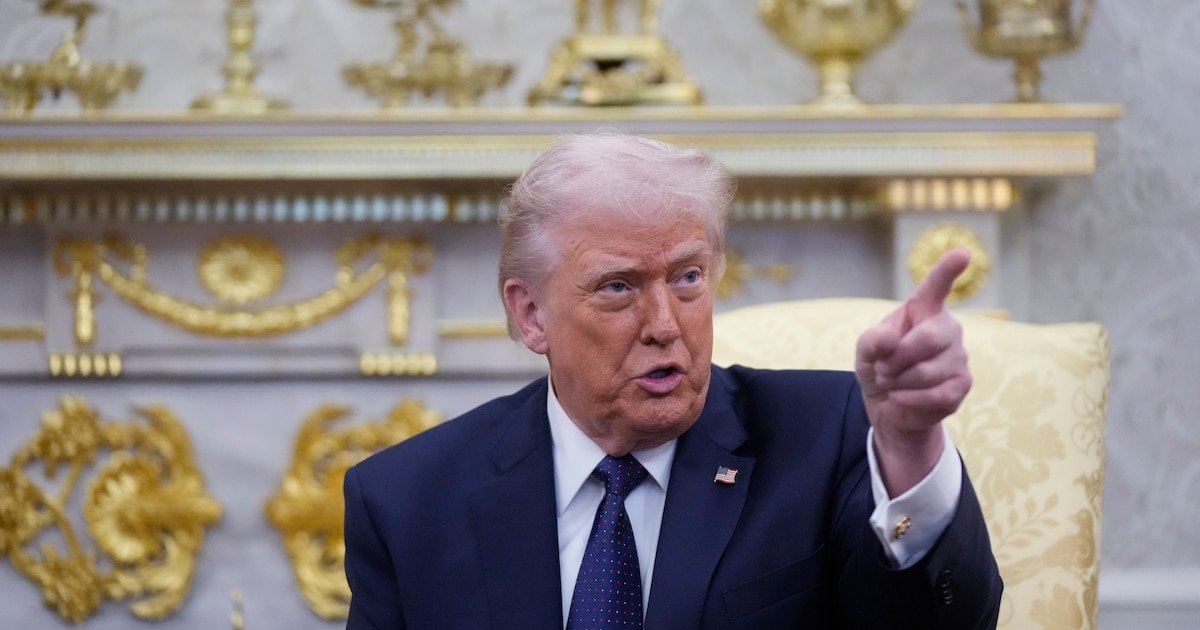
El presidente de Estados Unidos, Donald Trump, aseguró este jueves que el régimen cubano “está cerca de su final” y vinculó la crisis actual de la isla a la estrategia de presión económica implementada por su administración.
“Cuba caerá… Después de 50 años, eso es la guinda del pastel”, afirmó el mandatario en una entrevista telefónica con Politico.
Trump sostuvo que la grave escasez de combustible y productos básicos que vive actualmente la población responde al corte de suministros y petróleo venezolano, una medida que Washington considera clave en el debilitamiento progresivo de la dictadura cubana.
Según el presidente estadounidense, la política de endurecimiento de las sanciones ha logrado aislar a Cuba de su principal fuente de apoyo externo: Venezuela.
“Cortamos todo el petróleo, todo el dinero, todo lo que venía de Venezuela, que era la única fuente”, detalló Trump.
De acuerdo con el mandatario, la falta de recursos externos ha puesto al régimen en una situación límite, acelerando un proceso de cambio político que, según sus palabras, “ya no tiene retorno”.
“De lo contrario, no tendrían este problema”, subrayó en referencia al desabastecimiento generalizado.
En este contexto, Trump confirmó que existen negociaciones en curso entre Estados Unidos y La Habana, aunque aclaró que la iniciativa responde a la necesidad manifiesta del régimen cubano de recibir asistencia ante la profunda crisis económica.
“Necesitan ayuda. Estamos hablando con Cuba”, dijo el mandatario en su entrevista con Politico.
La crisis humanitaria en Cuba se ha agravado en los últimos meses. Tras la detención del narcodictador Nicolás Maduro a principios de enero, en una operación sorpresa liderada por fuerzas estadounidenses, Trump ordenó nuevas restricciones, incluyendo una orden ejecutiva que impone aranceles y sanciona a cualquier país que intente suministrar petróleo a la isla.
Estas medidas han profundizado el aislamiento internacional del régimen cubano y han restringido aún más el acceso a combustible, alimentos y productos básicos para la población.
“Es por mi intervención, la intervención que está ocurriendo”, dijo Trump.
Durante la entrevista, Trump utilizó el caso venezolano como ejemplo del posible desenlace en Cuba. Destacó que, tras la captura de Maduro, la relación bilateral con Caracas experimentó un giro sustancial, con la cooperación de la jefa del régimen chavista, Delcy Rodríguez, a quien definió como una interlocutora “satisfactoria” para los intereses estadounidenses.
“Venezuela lo está haciendo fantásticamente. Está haciendo un trabajo fantástico. La relación con ellos es excelente”, aseguró Trump.
El presidente también abordó la dimensión geopolítica de su estrategia. Según Trump, la presión sobre La Habana busca no solo el aislamiento económico, sino también un cambio de orientación política y económica en la isla, similar al proceso iniciado en Venezuela. Washington considera que la caída del régimen cubano alteraría de manera significativa el equilibrio de poder en el Caribe y fortalecería la proyección de Estados Unidos en la región.
Mientras tanto, la situación interna en Cuba continúa deteriorándose. Los reportes sobre largas filas para acceder a combustible, apagones extensos y escasez de alimentos reflejan el impacto de las sanciones y el corte de suministros externos.
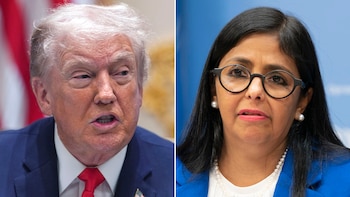
Trump reiteró durante la entrevista que la inminente caída del régimen cubano será una de las piezas centrales de su legado en política exterior. “¿Cuánto hace que escuchas hablar de Cuba? ¿Cuba, Cuba? Por 50 años”, expresó el presidente, enfatizando que su administración ha conseguido lo que no lograron los gobiernos anteriores: llevar al régimen cubano a una crisis terminal.
(Con información de Europa Press)
Daily Life,Energy Resources,General Society,Human Interest,Society / Social Issues,Energy Markets,South America / Central America,Human Interest / Brights / Odd News
INTERNACIONAL
Red Cross shares audio of Iranian civilian explaining situation on the ground in Tehran: ‘No respite’
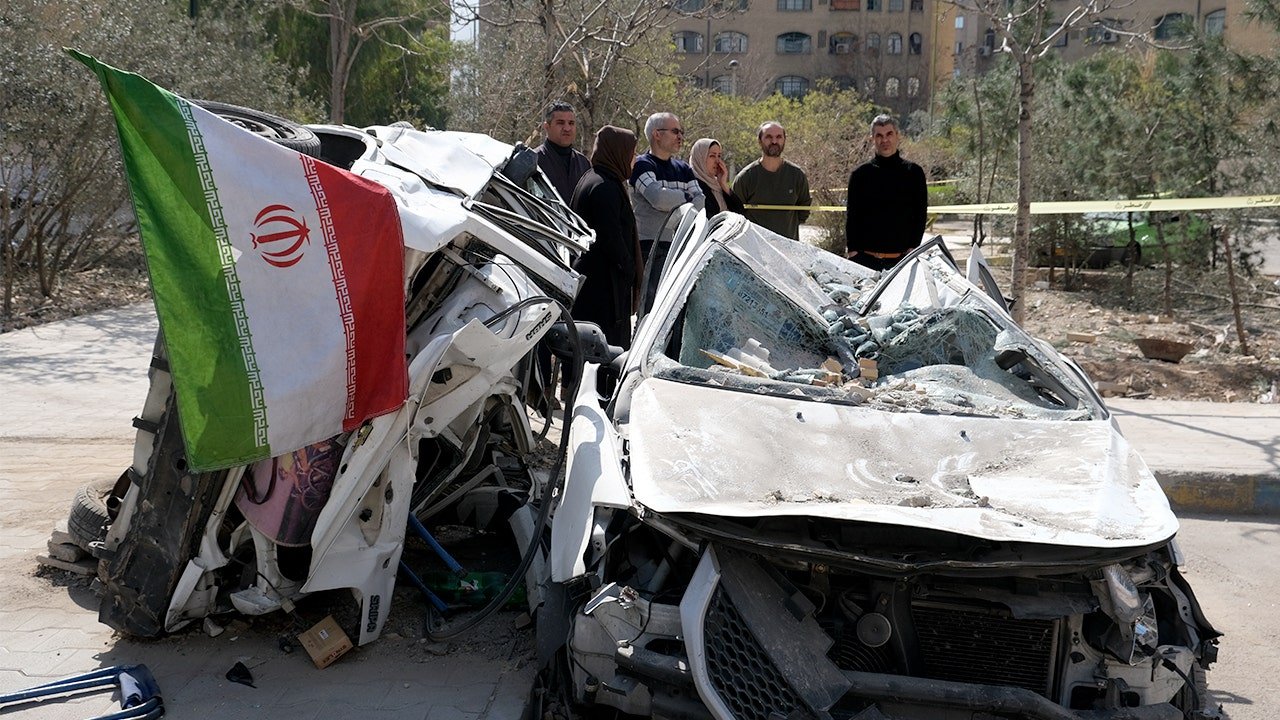
NEWYou can now listen to Fox News articles!
The International Committee of the Red Cross (ICRC) released audio Thursday of a civilian in Tehran describing what it’s like on the ground as Operation Epic Fury rocks Iran.
«To us here, the war did not start four days ago. It started when we heard the initial news of a piling up of the forces in the region and preparations for war. Now, with the war going on, we hear constant explosions, and there is no respite from this,» the unidentified civilian said.
The civilian said the frequency of explosions has made people so nervous that even everyday noises can cause panic attacks.
«Any moment you can expect a loud noise. This has made us so nervous that any loud noise, including the noise of a car passing by, gives us a panic attack,» the civilian said.
Even with the noise of the explosions, the civilian, who said he was born and raised in Tehran, noticed the city had become a ghost town as people had either fled the war or limited movements to stay safe from aerial attacks.
Neighbors stand March 5, 2026, in Tehran, Iran, near a destroyed car with an Islamic Republic flag, looking at a building damaged in the Shahid Borujerdi residential complex in Tehran that was heavily bombed the morning of March 4 by Israel and the U.S. during Operation Epic Fury. (Kaveh Kazemi/Getty Images)
«As a person who was born and lived his whole life in this city, I have never seen the city so quiet,» the civilian said. «Some of the people of my city have left. Many others stayed in, trying to limit movements to avoid getting caught in the aerial attacks on the city that never seem to come to an end. You don’t see people around. My city was a very big city and busy. I’m not used to seeing my city so calm and quiet.»
The U.S. and Israel have carried out air and sea attacks on Iran since the operation began Saturday. The operation has killed at least 1,230 people in Iran, according to The Associated Press. Additionally, six U.S. service members in Kuwait were killed in the hostilities.

A destroyed car outside a building in the Shahid Borujerdi residential complex in southeast Tehran March 5, 2026, that was heavily bombed the morning of March 4 by Israel and the U.S. during Operation Epic Fury. (Kaveh Kazemi/Getty Images)
IRAN’S DRONE SWARM ATTACKS UNLEASH ‘EXPONENTIAL COSTS’ ON US, PROLONGING WAR: ‘ASYMMETRIC CAPABILITY’
The ICRC has expressed concerns about the situation in Iran, and the organization’s president said on day one of Operation Epic Fury that it could have «devastating consequences for civilians.»
«The military escalation in the Middle East is igniting a dangerous chain reaction across the region, with potentially devastating consequences for civilians,» ICRC President Mirjana Spoljaric said.
In a statement issued a few days later, Spoljaric warned that «the scale of major military operations flaring across the Middle East risks embroiling the region — and beyond — into another large-scale armed conflict that will overwhelm any humanitarian response.»
«Without urgent steps to de-escalate the situation and respect the rules of war, further civilian lives will be lost,» Spoljaric added. «Civilians are already suffering the consequences of war.»

A view of Tehran with smoke visible in the distance after explosions were reported in the city March 2, 2026. (Contributor/Getty Images)
CLICK HERE TO DOWNLOAD THE FOX NEWS APP
According to the civilian, Iranians on the ground are worried about the future and wonder how the war will play out. Another fear among the people is the possibility of supplies running out.
«The supplies are available in the shops that are open and work. But what if the situation gets worse or continues as it is now? Will the supplies being stocked be of any help, or will they be meaningless in the face of what can happen?» the civilian wondered.
«It is especially more worrying for people like me, who have to take care of people with medical complications that require special care. We are now under a lot of stress, worried to see what can come next.»
Fox News Digital reached out to the ICRC for comment.
war with iran,world,iran,middle east
INTERNACIONAL
Virginia Dems mandate Jan. 6 be taught as ‘violent insurrection,’ ban election fraud claims in schools
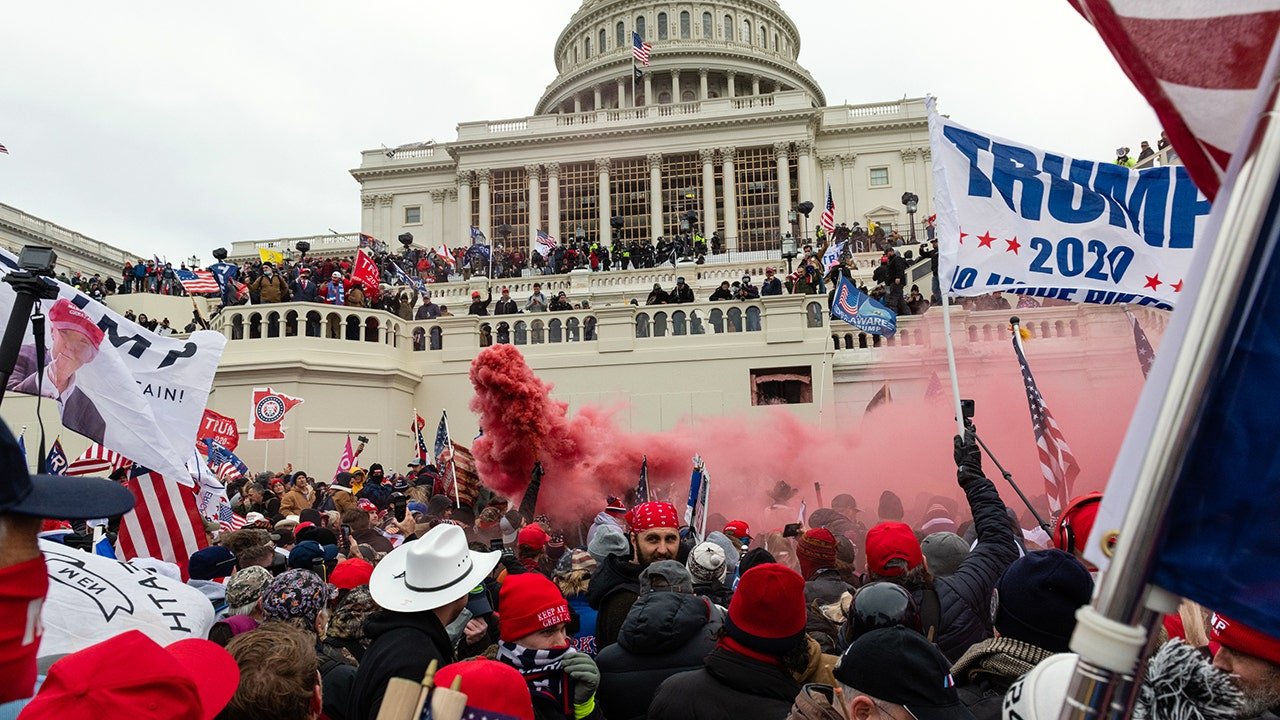
NEWYou can now listen to Fox News articles!
Virginia lawmakers passed a bill Wednesday that requires public schools to describe the Jan. 6, 2021, Capitol riot as a violent attack and specifically prohibits teachers from framing it as a peaceful protest.
Virginia Democrats have quickly advanced a slew of controversial legislation since Gov. Abigail Spanberger was elected in November and their ranks ballooned in the state House, including a bid to redraw every Republican congressman except Rep. Morgan Griffith out of their seats to make the Democratic majority 10-1 in the state’s congressional delegation. Now, they are taking steps to shape how the history of Jan. 6 is taught to children.
HB 333, crafted by Del. Dan I. Helmer of Fairfax, bars public school programs from describing the Jan. 6, 2021, Capitol riot as a peaceful protest or presenting claims that widespread election fraud altered the 2020 presidential results as credible.
The bill specifically «prohibits» instruction that portrays the insurrection as peaceful or suggests there was «extensive election fraud» that could have changed the election outcome. However, it does not lay out any explicit criminal penalties for violations.
Del. Dan I. Helmer, D-Fairfax, left, and VA AG Jay Jones, right. (Craig Hudson/Getty Images)
In a statement to the Virginia Mercury on the bill, Helmer said there is «real concern» that President Donald Trump is «trying to rewrite the history of January 6; borne out by the fact there is a WhiteHouse.gov site that presents a false history.»
Fox News Digital reached out to Virginia Republicans for comment.
The Virginia Assembly of Independent Baptists also came out against the bill, with executive director Michael Huffman testifying before a state Senate committee that the true education equips children for life, not political agendas, and glorifying or mandating … the dark day serves only short-sighted partisanship, not our kids’ future,» according to Hampton Roads’ PBS affiliate.
Helmer, an Iraq War veteran and staunch gun control advocate, was first elected by flipping what was Fairfax County’s last remaining Republican district, along its border with Prince William County, in 2020.
VIRGINIA DEMOCRATS MOVE TO SEIZE REDISTRICTING POWER, OPENING DOOR TO 4 NEW LEFT-LEANING SEATS
Helmer also announced a bid for Congress in one of the newly-redrawn districts nicknamed the «lobster» or the «scorpion» by critics – as it runs from the Potomac River in Arlington southwestward before splitting in two «claws» to reach out toward the West Virginia line near Rawley Springs and the other jutting down toward Goochland and Powhatan effectively collecting a swath of Republican-leaning towns and pitting them against a small but densely-populated Democrat stronghold.
One of his ads in a 2018 congressional bid compared Trump to Usama bin Laden, where he narrated that the «greatest threat to democracy» used to live «in a cave» but now «he lives in the White House.»
He had recused himself from the redistricting redraw, according to the New York Times, but is considered a top ally of House Speaker Don Scott, D-Portsmouth, who engineered the effort in the lower chamber.

Del. Dan I. Helmer, D-Fairfax, left, and VA AG Jay Jones, right. (Craig Hudson/Getty Images)
While the new map has yet to get voters’ approval in an April special election, Helmer has also garnered at least one Democratic challenger in the would-be heavily Democratic-favored district.
CLICK HERE TO DOWNLOAD THE FOX NEWS APP
Prosecutor J.P. Cooney, the former top deputy of Special Counsel Jack Smith in his investigation of Trump, told the New York Times that the mogul is not being sufficiently «check[ed]» by Congress and that the DHS-involved shooting of Alex Pretti solidified his decision.
Fox News Digital’s Alec Schemmel contributed to this report.
capitol protests,democrats elections,abigail spanberger,virginia,bills

 POLITICA3 días ago
POLITICA3 días agoPuertas adentro, Villarruel explotó: «El esfuerzo no lo hizo la política» y demolió el relato económico de Milei

 POLITICA3 días ago
POLITICA3 días agoPetri y Villarruel se cruzaron por un gesto en el Congreso: de “golpista” a “te conozco por el trencito de la alegría”

 CHIMENTOS1 día ago
CHIMENTOS1 día ago¡Interna total! Pablo Layus explotó y blanqueó quiénes son los que arruinan Intrusos: «Te matan»














